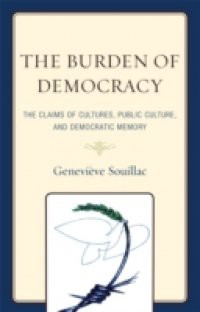This book offers an original contribution to the debate on contemporary democratic ethics. It argues that public culture provides the mediating spaces required for processes of encounter, but should be supplemented with an open dialogue on history, memory, and identity. Since democratic modernity is consolidating its new phase characterized by the multiplicity of perspectives, the mediation of conflict, identity, and memory are required to continue fostering mutual understanding and the identification of issues of common concern. The historical emergence of a public culture is a democratic gain. Recognizing this offers opportunities for ethical transformation that respects diversity but also addresses the realities of conflict under conditions of postmodernity.

